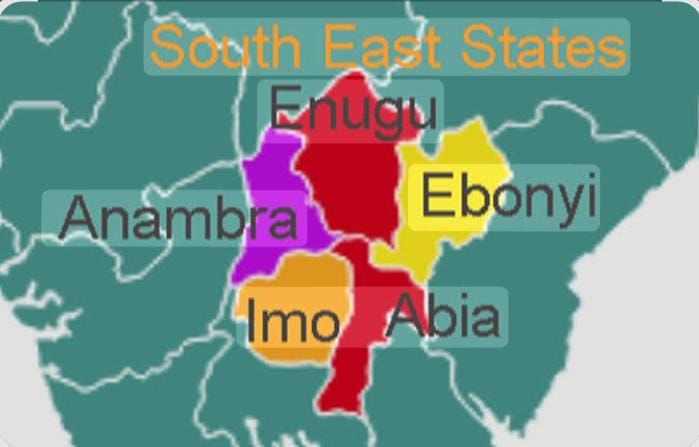There is growing outrage across Nigeria’s South East over what many describe as systemic marginalization by the federal government.
From education to infrastructure and federal appointments, data and recent developments suggest the region remains underserved despite its significant contributions to the nation’s economic, academic, and industrial growth.
Diaspora Digital Media (DDM), citing viral social media posts and testimonies from affected residents, reports that the recently introduced Student Loan Scheme, a federal initiative aimed at supporting students in public tertiary institutions, has sparked widespread discontent in the South East.
Many eligible students say they were unable to access the scheme due to technical issues, vague eligibility criteria, or what appears to be deliberate exclusion.
Educational marginalization is not new to the region.
During the last Joint Admissions and Matriculation Board (JAMB) examinations, numerous centres in the South East reportedly suffered major technical failures.
Students were either unable to write their exams or experienced long delays, resulting in unfair disadvantages compared to peers in other regions.
Worse still, the recently concluded UTME examinations saw an overwhelming 99% failure rate among candidates from the South East, a statistic that has drawn criticism and suspicion from education stakeholders and civil rights activists.
Infrastructure is another major concern.
Despite having economically vibrant cities such as Onitsha, Aba, and Nnewi, the region lacks a seaport, leaving traders dependent on distant ports in Lagos, Rivers, and Delta States.
The South East is also without an international airport, complicating travel and limiting regional commercial growth.
Major railway projects connecting Nigerian cities have continued to bypass the South East, isolating it from the federal transportation grid.
Key federal agencies such as the Nigerian National Petroleum Company (NNPC), Federal Inland Revenue Service (FIRS), and Nigeria Customs Service reportedly lack senior representation from the South East.
While developmental presence is low, the region remains heavily militarised, with a concentration of checkpoints along roads and towns.
Critics argue that instead of investing in growth and empowerment, the federal approach has been focused on over-policing and intimidation.
Civic voices from the region are often suppressed under allegations of sympathy for the Indigenous People of Biafra (IPOB), a separatist group proscribed by the Nigerian government.
This tactic, observers say, is used to delegitimise valid concerns and silence those advocating for justice and equity.
A particular point of contention is the continued detention of Mazi Nnamdi Kanu, leader of IPOB, who has been in solitary confinement for years.
Supporters argue that his treatment contrasts sharply with that of Yoruba freedom fighter, Sunday Igboho, who faces similar allegations but lives freely.
This disparity has fueled perceptions of ethnic bias and judicial double standards.
Many residents of the South East feel abandoned and excluded from Nigeria’s political and economic decision-making structures.
Analysts and civil society organisations have raised alarms, warning that persistent exclusion of any part of the country risks long-term consequences for national unity.
They are calling for a comprehensive national dialogue and an immediate shift toward inclusive governance, infrastructure investment, and educational equity.
Only then, they argue, can Nigeria begin to heal its deepening regional wounds and move toward a more united future.







